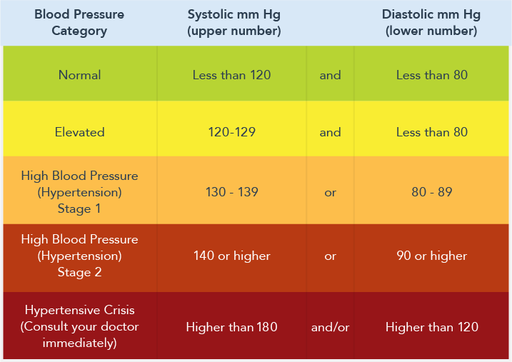Living with High Blood Pressure
Judy Seybold, MS, RDN, LD, CLC
Chief Nutrition Officer
High blood pressure, hypertension, is a consistently high force of blood flowing through the blood vessels. It affects nearly half of all adults with the majority of them not having it under control. When hypertension is uncontrolled, it can damage your circulatory system, putting you at risk for heart attack, stroke, heart failure, and other serious life threats.
Shop Sifter for products that help support a healthy blood pressure
Risk Factors
There are many factors that can put you at increased risk for developing hypertension. Some of these factors cannot be controlled, but the majority can be through lifestyle modification.
Uncontrollable Risk Factors
- Age
- Chronic kidney disease
- Family history
- Gender
- Race
Controllable Risk Factors
- Diet
- Diabetes
- Excessive alcohol intake
- High cholesterol
- Overweight or obese
- Sleep apnea
- Smoking
- Stress
Diagnosis
High blood pressure is diagnosed using two blood pressure readings on two different occasions.

Source: American Heart Association
Healthy Eating
What you eat can affect your chances of developing high blood pressure. Scientific studies show eating less sodium can have heart-healthy benefits such as lowering blood pressure and decreasing your risk for having a heart attack and stroke.
Healthy Eating Tips to Reduce Sodium
- Eat more fresh foods. Avoid processed foods with long ingredient statements.
- Limit added salt.
- Use fresh herbs, spices, and citrus juice instead of salt when cooking.
- Read labels and compare sodium content of foods.
- Rinse canned foods to reduce some of the sodium.
- Choose low-sodium, reduced-sodium, or no added salt.
- Use fresh poultry, fish, and lean meat rather than canned, smoked, or marinated.
- Cook rice pasta and hot cereals without added salt.
- Cut back on frozen dinners or convenience foods.
- Cook at home as much as possible with fresh foods so you can control the amount of sodium.
DASH and Mediterranean Diets
Decreasing sodium intake and following the DASH or Mediterranean-style Diet can help prevent and treat high blood pressure.
Dietary Approaches to Stop Hypertension (DASH) was developed to help people lower or control high blood pressure. This way of eating emphasizes the inclusion of foods that are lower in sodium along with foods that are rich in potassium, magnesium, and calcium, which help lower blood pressure. Fruits, vegetables, low-fat dairy, whole grains, fish, poultry, and nuts are the featured foods included in this diet. Red meat, sweets, and sugar-containing foods are limited to the plan.
The Mediterranean diet is similar to the DASH since it is characterized by a high intake of plant-based foods (fruits, vegetables, legumes, whole grains, and nuts). Emphasis is also placed on monounsaturated fats such as olive oil and a moderate intake of wine, fish, and poultry. Fish is the main protein source instead of red meat or pork. Fermented dairy products are consumed regularly but in moderate amounts. Eggs and poultry are occasionally consumed, but red meat and processed foods are not eaten regularly.
In addition to specific eating patterns, the Mediterranean diet places a strong focus on movement and physical activity, social connections, and relaxation. Studies link the Mediterranean diet to some of the lowest heart disease rates and the longest life expectancies in the world. Even though some Mediterranean countries’ diets have become more “westernized” to include fast food, less physical activity, and more processed food, there are still many people that still follow the traditional Mediterranean fare.
Following the DASH eating plan and the Mediterranean-style diet are just some components of a heart-healthy lifestyle. To help prevent and control high blood pressure in addition to following these eating plans, make sure to stay physically active, maintain a healthy weight, limit alcohol intake, and manage stress. Work with your physician to monitor high blood pressure, and consult a registered dietitian to get you started with these meal plans.
Additional Resources
Hypertension: Understanding a Silent Killer
DASH diet: Healthy eating to lower your blood pressure
Lowering Your Blood Pressure with DASH